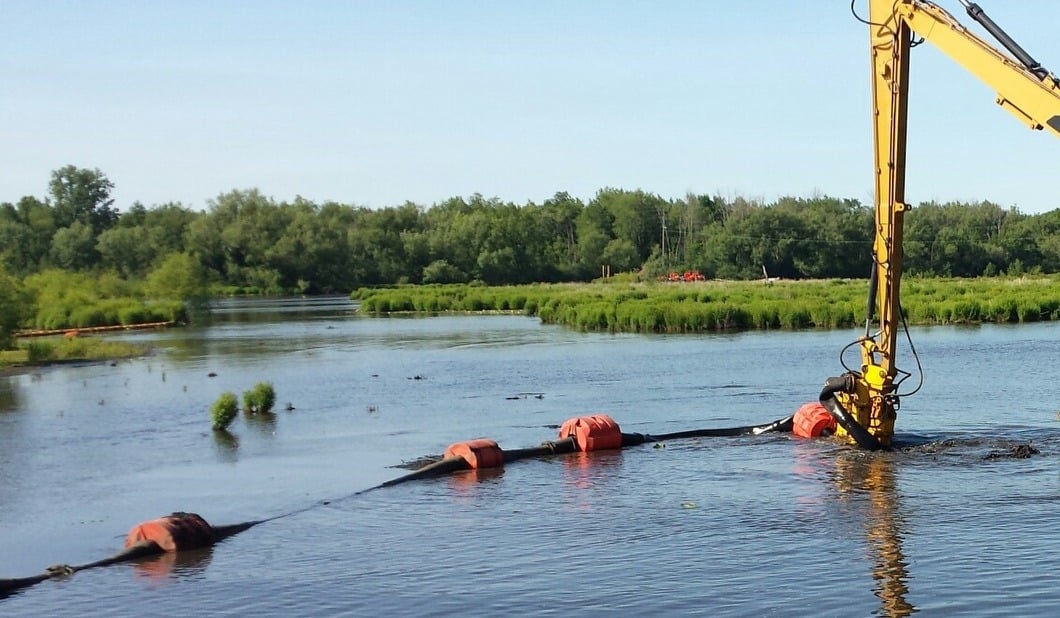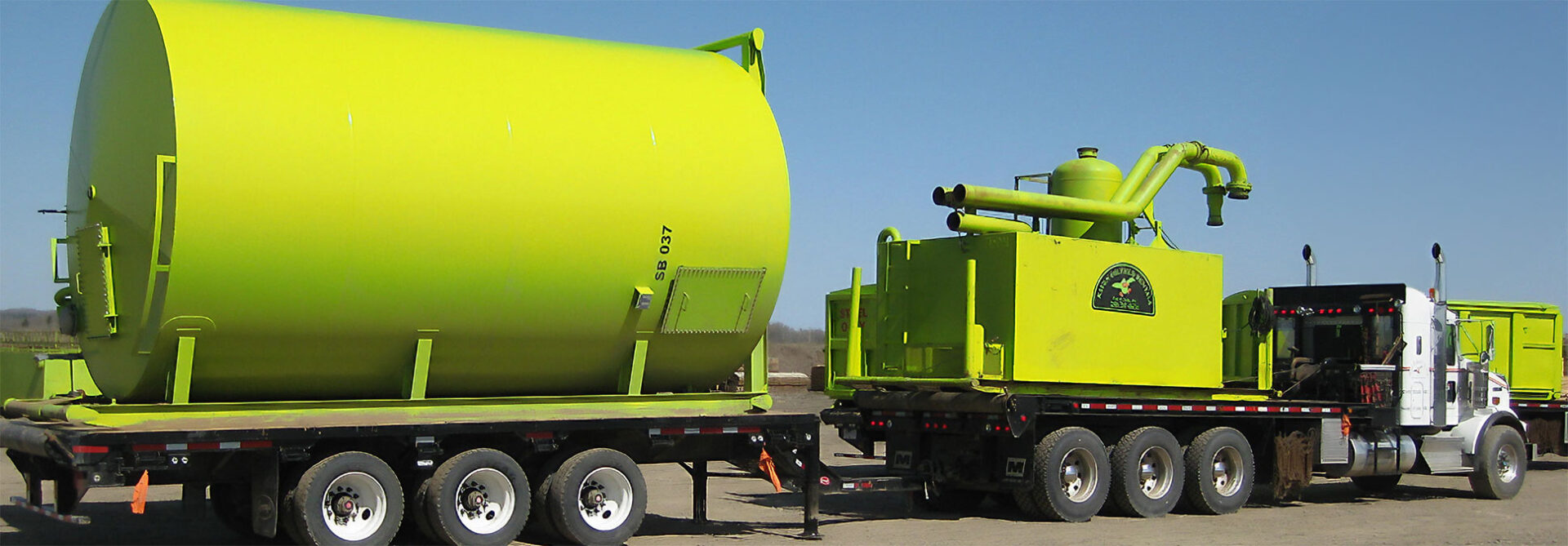A Comprehensive Guide to the Various Kinds Of Oil Field Equipment and Pipeline Equipment Available
The oil and gas sector counts heavily on customized equipment for efficient extraction and transport. Numerous kinds of machinery, from piercing rigs to storage tanks, play crucial duties in this complicated procedure. Each item of tools offers distinctive features that contribute to overall operational success. Understanding these components is necessary for anyone associated with the industry. As the market develops, so as well do the innovations that support it. What developments are on the horizon?

Drilling Rigs: The Foundation of Oil Exploration
Drilling rigs offer as the important equipment in the domain of oil exploration, making it possible for companies to accessibility hydrocarbon books buried deep underneath the Earth's surface area. These rigs come in different types, including land rigs, offshore rigs, and mobile devices, each developed to run in specific atmospheres. Outfitted with advanced innovation, piercing rigs can pass through geological formations with accuracy, guaranteeing reliable resource extraction. The structural stability and functional abilities of these rigs are critical, as they need to withstand severe conditions and considerable stress. Furthermore, the selection of a drilling gear impacts the total task cost and timeline, making it a vital factor to consider for oil companies seeking to maximize their exploration efforts and optimize performance in their operations.
Pumps: Vital for Fluid Motion
In the oil removal process, the duty of pumps is substantial, assisting in the motion of fluids throughout various phases of manufacturing. Pumps are crucial for moving petroleum, water, and various other liquids from below ground storage tanks to the surface area and after that with pipelines to refineries. They are available in different types, including centrifugal, positive variation, and completely submersible pumps, each offering details objectives based upon the liquid characteristics and functional demands. Centrifugal pumps are commonly used for their performance in high-flow applications, while favorable variation pumps stand out in dealing with thick liquids. The option of pump impacts overall performance, functional security, and maintenance prices. Appropriate selection and upkeep of pumps are crucial for optimizing manufacturing and lessening downtime in oil field procedures.
Shutoffs: Controlling Circulation and Pressure

Valves play a vital role in taking care of the flow and stress of fluids within oil areas and pipes. Various kinds of shutoffs serve distinctive applications, each created to fulfill certain features fundamental for effective procedure - Superior Rentals Contact. Comprehending the characteristics and uses of these valves is vital for enhancing system performance and safety and security
Sorts of Valves
Essential parts in oil area operations, shutoffs play a vital role in controlling the circulation and pressure of liquids within pipes and tools. Different kinds of valves are utilized to meet the diverse needs of oil and gas manufacturing. Usual kinds consist of gateway valves, which offer a straight-line flow and minimal pressure decline; world valves, known for their throttling abilities; and round shutoffs, identified for their quick on/off control. Additionally, check valves prevent heartburn, while butterfly valves supply a lightweight option for regulating flow. Each valve type is designed with details materials and setups to withstand the harsh conditions often discovered in oil fields, ensuring reliability and effectiveness in operations. Recognizing these types is crucial for effective system administration.
Valve Applications and Functions
While numerous kinds of valves serve distinct functions, their primary applications focus on controlling circulation and stress within oil and gas systems. Valves such as gateway, world, and ball shutoffs manage fluid movement, ensuring peak efficiency and safety. Gate shutoffs are commonly used for on/off control, supplying marginal circulation resistance. Globe shutoffs, on the other hand, deal exact circulation policy, making them ideal for strangling applications. Sphere shutoffs are preferred for their fast procedure and tight securing capabilities. Furthermore, stress relief shutoffs are important for avoiding system overpressure, guarding devices integrity. Generally, the ideal selection and application of shutoffs enhance functional performance, guaranteeing the trustworthy transportation of oil and gas through pipes and processing facilities.
Compressors: Enhancing Gas Transportation
Compressors play a vital role in the effective transportation of gas, guaranteeing that it relocates smoothly via pipelines over fars away. These devices enhance the pressure of all-natural gas, enabling it to get over rubbing and altitude modifications within the pipeline system. Furthermore, compressors promote the harmonizing of supply and need, suiting variations in usage and manufacturing prices. Numerous sorts of compressors are used in the sector, including centrifugal, reciprocating, and rotating screw compressors, each offering distinctive advantages based upon the operational requirements. Routine maintenance of these compressors is vital to take full advantage of effectiveness and lessen downtime, eventually adding to a reputable gas transport network. Their important feature emphasizes the relevance of compressors in the overall oil and gas framework.
Storage Tanks: Safe and Efficient Fluid Administration
Effective transportation of gas counts on various support group, among which is the proper management of tank. These containers play an essential duty in securely including liquids, making certain that operational efficiency is maintained while decreasing environmental risks. Built from durable materials, they are get more info designed to endure high pressures and corrosive components. Appropriately sized and strategically located, storage tanks help with the smooth circulation of gas and other liquids, stopping traffic jams in supply chains. Regular maintenance and monitoring are imperative to detect leakages or structural problems, promoting safety and security and conformity with regulative requirements. Ultimately, the reliable management of storage space containers is vital for the overall honesty and reliability of the oil and gas market's liquid handling systems.
Pipeline Equipments: Facilities for Transport
Pipeline systems act as the backbone of the oil and gas market, helping with the effective transport of hydrocarbons over large ranges. These systems consist of numerous components, consisting of pipelines, valves, pumps, and compressors, all diligently developed to ensure smooth circulation. The products utilized in pipeline construction, commonly steel or high-density polyethylene, are selected for longevity and resistance to deterioration. Pipeline networks can extend throughout land and water, connecting production sites to refineries and circulation centers. Furthermore, progressed technology allows real-time monitoring of flow prices and pressure levels, enhancing operational performance. The calculated placement of these pipes minimizes environmental influence while making best use of resource ease of access, thereby playing an essential function in meeting power needs globally.
Safety Equipment: Making Certain Employee and Environmental Management
The operation of pipeline systems, while essential for energy transportation, likewise offers substantial safety and security difficulties for workers and the environment. Safety tools plays a substantial duty in mitigating these threats. Individual protective tools (PPE) such as safety helmets, gloves, and non-slip shoes safeguards employees from physical risks. In addition, gas discovery systems monitor for leakages, making certain that harmful materials do not posture a hazard to personnel or the bordering ecological community. Emergency shutdown systems are essential for swiftly stopping procedures during a crisis, preventing prospective calamities. Spill control products, including absorbents and barriers, are essential for reducing environmental influence. Generally, investing in all-inclusive safety tools is essential for maintaining functional honesty and safeguarding both employees and the setting in the oil and gas industry.

Regularly Asked Inquiries
Just how Do I Pick the Right Oil Field Equipment for My Job?
Selecting the ideal oil field tools entails examining job specs, budget restraints, and functional demands. Consider factors such as tools integrity, compatibility with existing systems, and the vendor's credibility to guarantee peak efficiency and safety.
What Are the Upkeep Needs for Oil Field Equipment?
Maintenance requirements for oil area devices consist of routine evaluations, lubrication, and prompt fixings. Operators ought to also abide by producer standards, monitor efficiency metrics, and guarantee conformity with security regulations to boost longevity and performance.

Exactly How Can I Make Certain Conformity With Environmental Laws?
To assure conformity with ecological laws, firms have to perform normal audits, apply best methods, spend in training, preserve correct documentation, and stay upgraded on regulation (Superior Rentals midland). Cooperation with ecological agencies can likewise boost adherence to laws
What Is the Average Life Expectancy of Pipeline Equipment?
The ordinary life-span of pipeline equipment usually varies from 20 to half a century, relying on factors such as material high quality, ecological conditions, and upkeep practices. Regular evaluations can considerably affect long life and functional performance.
How Do I Safely Transfer Oil Field Equipment to Remote Locations?
Delivering oil area equipment to remote places needs cautious planning, including path evaluation, protecting licenses, utilizing suitable cars, and making sure security protocols are complied with. Proper training and interaction among staffs are important for successful transport.